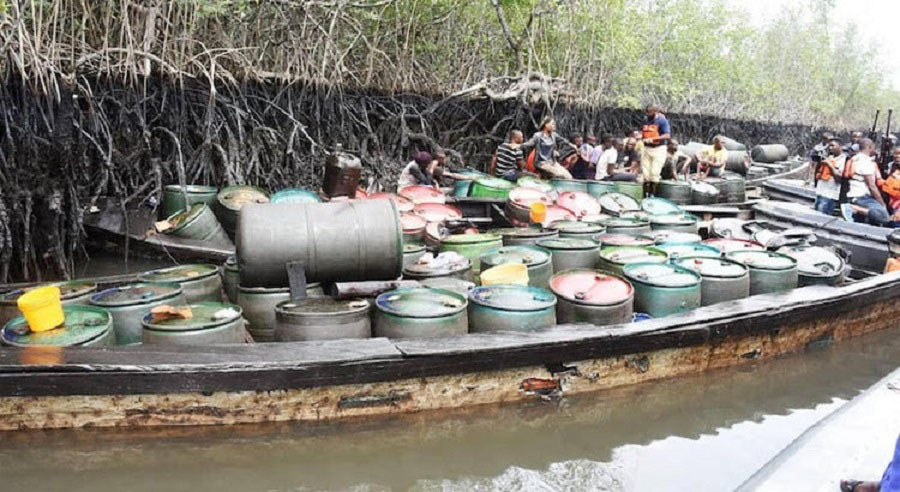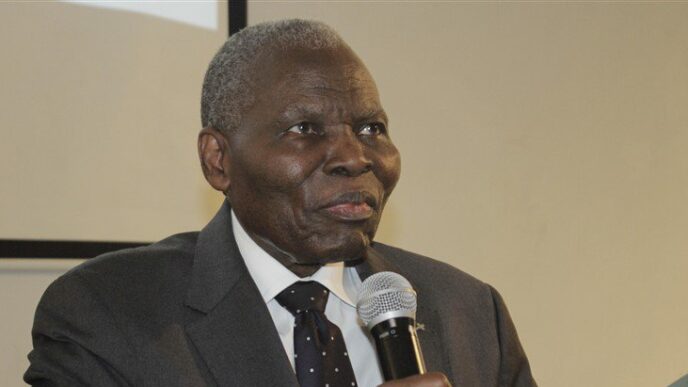The Nigerian Government has lost an estimated 13.5 million barrels of crude oil, valued at $3.3 billion, to oil theft and pipeline vandalism between 2023 and 2024.
The Executive Secretary of the Nigeria Extractive Industries Transparency Initiative (NEITI), Dr Ogbonnaya Orji, disclosed this on Thursday at the 2025 Association of Energy Correspondents of Nigeria (NAEC) Conference in Lagos.
Speaking on the theme, “Nigeria’s Energy Future: Exploring Opportunities and Addressing Risks for Sustainable Growth,” Orji explained that the lost revenue could have funded a full year of the federal health budget or provided electricity access to millions of households.

“These losses go beyond economics—they symbolise broken trust, weak institutions, and missed chances for national advancement. Transparency and accountability are not optional; they are essential for our survival,” he stated.
According to him, Nigeria’s energy future will not depend on the size of its reserves or production capacity but on how responsibly and transparently the nation manages its natural resource wealth—its revenues, contracts, and data.
“The era of secrecy in resource governance is over,” Orji declared. “The global shift towards cleaner fuels, gas optimisation, and renewable energy demands openness, accountability, and innovation at every stage of the energy value chain.”
He reaffirmed NEITI’s guiding principle that “data builds trust, and trust drives investment,” adding that transparency is an economic necessity rather than a bureaucratic process. “It attracts capital, technology, and partnerships,” he said.
Orji revealed that Nigeria earned $23.04 billion in 2021 and $23.05 billion in 2022 from the oil and gas sector, according to NEITI’s 2021–2022 industry reports. However, he noted outstanding remittances of ₦1.5 trillion owed to the Federation by various companies and government agencies—funds which, if recovered, could boost infrastructure, education, and healthcare.
He highlighted that NEITI has evolved from being an auditing body into a governance reform institution over the past decade. The agency now conducts regular audits of Nigeria’s extractive sectors, tracks production and payments, maintains a Beneficial Ownership Register exposing over 4,800 asset owners, and operates an open-data centre for real-time public access to industry information.
NEITI has also strengthened collaboration with the NUPRC, NMDPRA, and NCDMB to enhance transparency in licensing, metering, and host community trust management. It recently introduced a Just Energy Transition and Climate Accountability Framework to ensure that Nigeria’s shift to cleaner energy remains transparent, inclusive, and fair.
“These achievements are not ceremonial—they are practical reforms aimed at embedding transparency into the DNA of Nigeria’s extractive industries,” Orji stressed.
As Nigeria positions natural gas as its transition fuel and renewable energy as its long-term goal, Orji urged the government to embrace innovation.
“Our energy future must be grounded in verifiable data, open contracts, measurable emissions, and accountable institutions. NEITI envisions a sector where every dollar is traceable, every contract is public, and every citizen can see how natural resources contribute to national prosperity,” he concluded.


 Trending
Trending 







